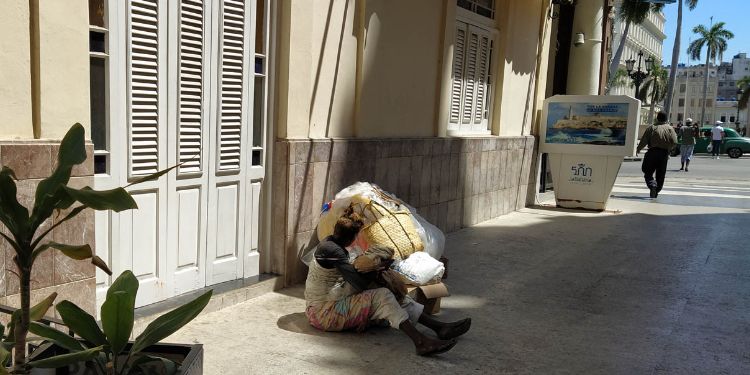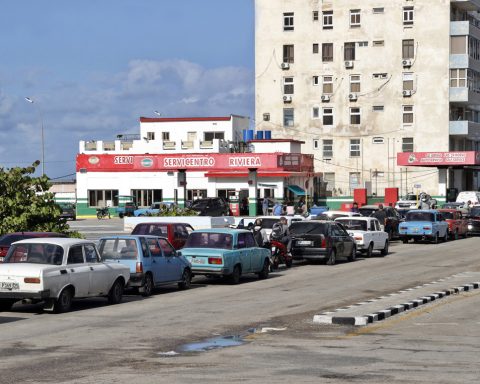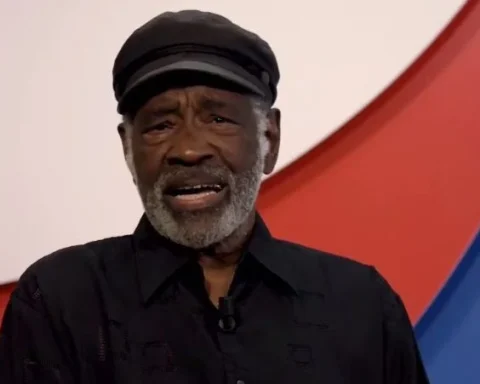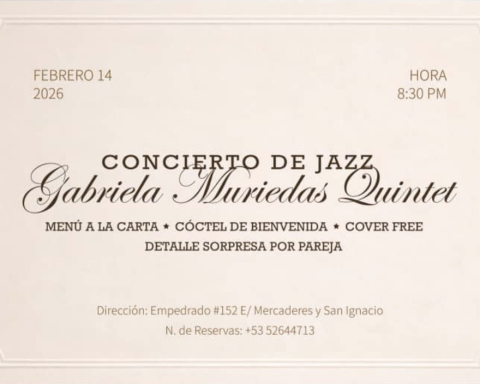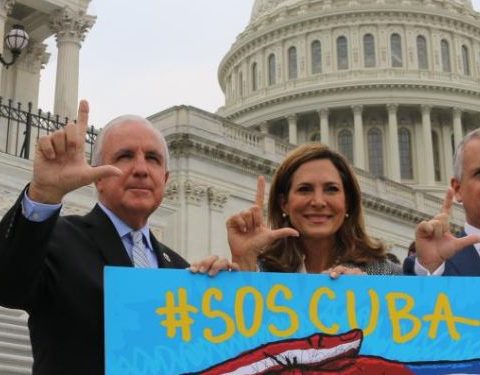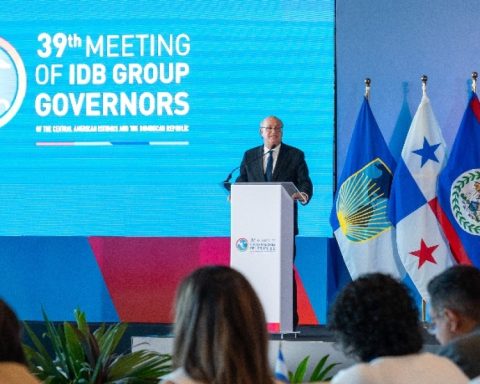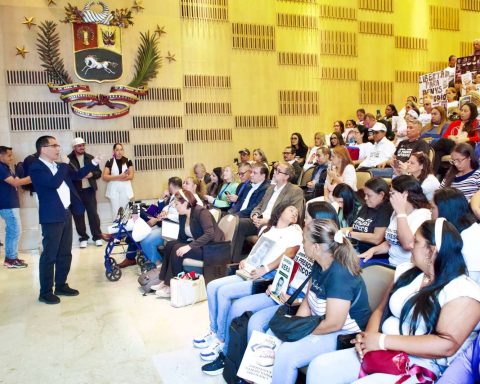Havana Cuba. – “We are full”, “we are full”, “we expect a very large delegation”, “we are only serving guests”, “there are no capacities left”, are some of the justifications that Cubans hear these days when they try to enter anyone of the great hotels of Havana.
Social networks have been bursting with complaints for weeks, but the Ministry of Tourism and hotel companies, both foreign and national, have not yet made an official statement regarding what is clearly a discriminatory policy, if not against Cubans residing in Cuba, at least against a national currency in which, since it is so devalued, no business wants to market its services.
These are not rumours, it is not a circumstantial scandal on social networks, it is unfortunately a reality that we were able to verify on the ground when we went out to verify how true and comprehensive this “new regulation” could be, which, without being covered by any of the many phantom resolutions that govern day-to-day life on the island —sometimes citizens are not even aware of it—, the Constitution is totally ignored.
A violation that no longer amazes anyone in Cuba, not only because it would add to a host of unconstitutional practices of the dictatorship that drafted the Magna Carta itself, but because several generations already suffered from it for decades when Fidel Castro, seeing tourism as a “necessary evil”, denied ordinary Cubans access to hotel facilities, a ban that would extend to the entire commercial circuit intended for foreigners but that did not apply to high-ranking military personnel, first-level state officials and family members. of these.
According to what we have been able to learn directly from people who work in hotels such as the Nacional, Capri, Manzana Kempinski, Grand Aston, Paseo del Prado and Grand Packard —the object of most of the complaints on the internet—, these facilities are obliged to market a minimum of services in Cuban pesos, for national clients, but only to keep up appearances in favor of an official discourse that does not finish publicly accepting that the national currency is like a hot potato.
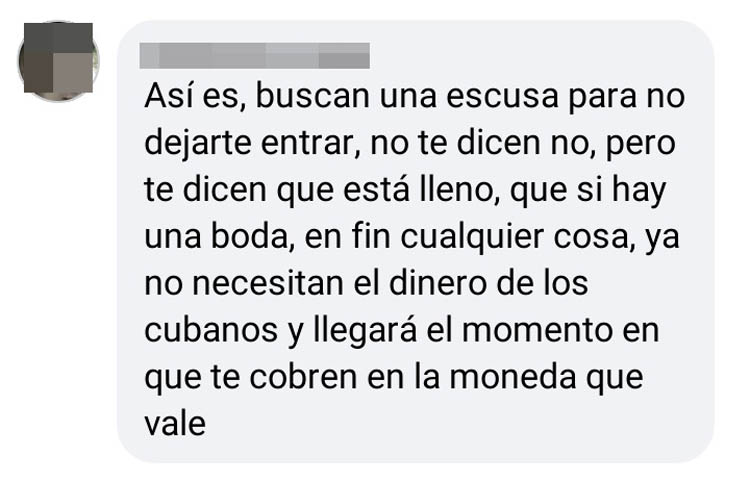
One of the reasons in which the employees, directors and officials agree with those who CubaNet was able to talk is that, in high-standard establishments, it is not profitable to market in Cuban pesos, at an unrealistic exchange rate, much lower than that of the informal market, much less when the inputs are purchased in foreign currency, including those that are purchased in Cuba, either from state suppliers or private producers.
According to several sources, the agreement with the Cuban government to trade in Cuban pesos responds to strictly political objectives, and has not been fulfilled by the Cuban side, which would have agreed to pay the amounts collected in national currency in foreign currency, according to with a fixed exchange rate, agreed between the parties.
“There is a debt accumulating and, as (the Cuban bank) has communicated to us on several occasions, it is not possible to liquidate it at the moment,” assures the manager, on the condition of anonymity, for the foreign part, of one of the hotels most noted as discriminatory with domestic customers.
“It is not about discriminating against Cubans, not at all (…). My wife is Cuban, it is a protection measure, because otherwise we would end up closing (…), the Government has been asked to update the agreement, but so far there has been no response; nor have we been able to adjust prices to an exchange rate similar to that on the street because we are waiting for a response (…), today our prices, although they are high, are well below the prices of any paladar (private restaurant) in Havana. People have done their accounts. We too, and it’s not a business”, concludes the manager.
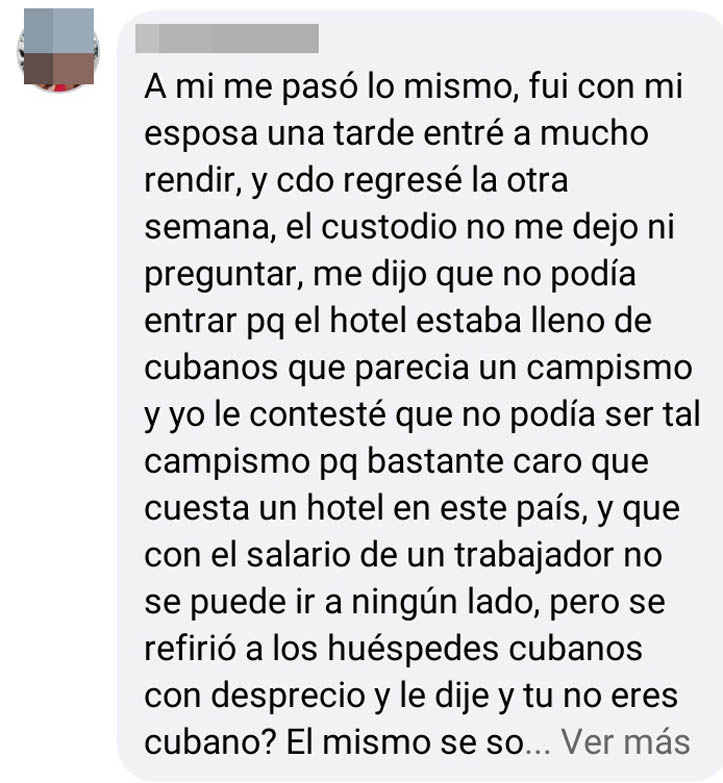
An official from the Ministry of Tourism, interviewed by CubaNet Under the commitment to protect his identity, he assured that so far there is no prohibition issued by the government institution, although he acknowledges that several establishments, individually, have taken actions with the aim of avoiding losses when marketing their services in Cuban pesos.
“That the prohibition does not exist does not mean that it is not happening, but it is also known to the Government,” says this official. “They have preferred to look the other way rather than pay their debts and allow prices to readjust. They have insisted on wanting to demonstrate that the national currency has value when reality is telling us that it does not (…). The Ministry (of Tourism) has made recommendations on the need to establish exceptions with certain establishments of high standards; In fact, none of those hotels is marketed to Cubans in the reservation bureaus.”
However, another source consulted from the same institution informed us that such “recommendations” look more like very clear indications, and are the ones that, by way of internal decrees, have given the green light to prohibit access in certain hotel facilities. to Cubans without fear of reprisals by the regime.
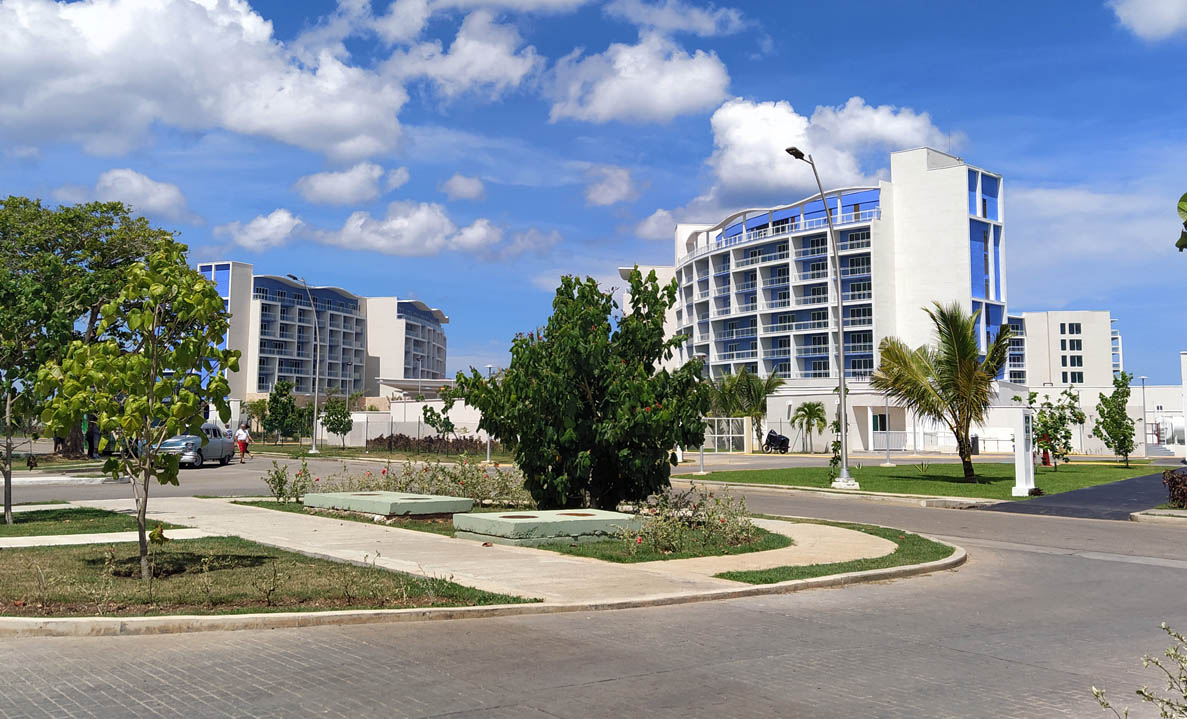
“It is that not only the foreign party is affected, everyone is harmed”, declares this official under the condition that we reserve his identity. And he continues: “You cannot buy and import in foreign currency to sell in Cuban pesos. It can’t be done. Although the Ministry (of Tourism) did not respond to the claims (to settle debts and readjust exchange rates), it authorized exceptions to be made. (…) It is not possible to continue providing services in Cuban pesos in some 12 hotels, eight of them in Havana, including the Hotel Nacional, although only in this one will the package offers be maintained to a limited number of Cuban clients, preferably if they carry out reserves from abroad.
With the arrival of Raúl Castro to power, in 2008, the prohibition established by Fidel Castro was eliminated shortly after, although not completely, in some places, under various forms that were not only the high prices —impossible to pay even for a highly qualified professional worker—implemented a set of “internal directives”, tolerated by the regime, in order to limit the access of Cuban clients, especially one still used in bars, restaurants and hotels that warn about the “Admission rights”.
It seems that now Miguel Díaz-Canel with his “continuist” policy has wanted to restore “splendour” to a discriminatory jewel of the past, although apparently he has not decided to turn into law what could be on the way to being an open practice.
Receive information from CubaNet on your cell phone through WhatsApp. Send us a message with the word “CUBA” on the phone +525545038831, You can also subscribe to our electronic newsletter by giving click here.
